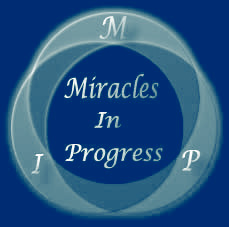This is a Buddhist Parable which is marvelous in itself,
but for me illustrates the internal world we (hopefully) visit in the process of doing Step 9.
Thank God we have done the first 8 steps before we are allowed to go back to 'the real world'. We need ALL the preparation we can get our hands on because we are naturally SO self centered, and generally pretty oblivious to the suffering of the people around us.
Although we may have learned of compassion through the work we do with newcomers, true compassion is experienced more readily when we visit the suffering we brought to others in step 9.
It just sinks in more or something.
Like most things in the programme, its almost impossible to describe.
You have to experience it to understand what I mean by that.
To me this is a story about SELF CENTREDNESS, and how it breeds ignorance of our surroundings and therefore an imbalanced view of the world. Self pity, or whatever else.
My experience in sobriety is that EVERYONE has a story, and that if you knew it, you would find it IMPOSSIBLE to hold resentments. You would feel nothing but compassion.
Anyway, hope you like the story..
Kisa Gotami had an only son, and he died. In her grief she carried the dead child to all her neighbors, asking them for medicine, and the people said, "She has lost her senses. The boy is dead."
At length Kisa Gotami met a man who replied to her request, "I cannot give you medicine for your child, but I know a physician who can. Go to Sakyamuni, the Buddha."
Kisa Gotami repaired to the Buddha and cried, "Lord and Master, give me the medicine that will cure my boy."
The Buddha answered, "I want a handful of mustard seed." And when the girl in her joy promised to procure it, the Buddha added, "The mustard seed must be taken from a house where no one has lost a child, husband, parent, or friend."
Poor Kisa Gotami now went from house to house, and the people pitied her and said, "Here is the mustard seed, take it!" But when she asked, "Did a son or daughter, a father or mother, die in your family?" they answered her, "Alas! the living are few, but the dead are many. Do not remind us of our deepest grief." And there was no house but some beloved one had died in it.
Kisa Gotami became weary and hopeless, and sat down at the way-side, watching the lights of the city as they flickered up and were extinguished again. At last the darkness of night reigned everywhere. And she considered the fate of men, that their lives flicker up and are extinguished. And she thought to herself, "How selfish am I in my grief! Death is common to all; yet in this valley of desolation there is a path that leads him to immortality who has surrendered all selfishness."
Putting away the selfishness of her affection for her child, Kisa Gotami had the dead body buried in the forest. Returning to the Buddha, she took refuge in him and found comfort in the Dharma.
Buddhism. Buddhaghosa, Parable of the Mustard Seed

About Me

- An Irish Friend of Bill
- I have recovered from the disease of Alcoholism. I believe there is only one person really,.. everybody. And that peace of mind is everything. -So treat your neighbor as you would treat yourself, because your neighbor IS yourself. I think most of recovery is what I would call common sense, but that learning to be ordinary is a true gift very few people acquire. My ambition is to accept everything unflinchingly, with compassion, and therefore be intrinsically comfortable in my own skin, no matter what. I am comfortable being uncomfortable and am willing to go to any lengths to improve my life. I believe the Big Book was divinely inspired, and is extraordinarily powerful. Unfortunately AA's best kept secret a lot of the time. (In my opinion). I just try to do what works, no matter what it is.
Subscribe to:
Post Comments (Atom)
No comments:
Post a Comment